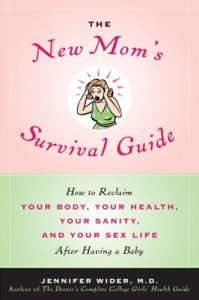I’m reading for you. That’s what I wrote in my VOYA article published earlier this year, and I really believe that as a librarian, I have a responsibility to read beyond my personal choices. That’s the nature of the job. But it’s not always easy. No matter how professionally I view my reading choices, there is an element of the personal in there as well. And personally… I sometimes get stuck in a reading rut.
In an effort to hold myself accountable for my reading, I started creating monthly reading reports. It was partly a desire to see what I could do with Adobe Spark, which I had just discovered, and partly a way to visually organize the group of books I chose for the month to see where I might have holes. These reports are more for my own benefit than anyone else’s, but I have been sharing them on the chance that someone might be interested.
Here’s what I’ve noticed: Without some kind of accountability, I would probably read 95% teen fiction with female protagonists written by female authors. Contemporary realism with a bias toward romance. Mostly written by white authors. Not too surprising, I suppose.
 But, honestly, some of my favorite books this year has been outside of that particular niche. I read Adi Alsaid’s North of Happy because I realized I had read very little written by men. It was excellent. I read The Secret of Dreadwillow Carse by Brian Farrey because I was really lacking in children’s fantasy choices. It was easily one of the best books I read this year. The Diabolic and The Passenger were my attempts to read science fiction, and both were un-put-down-able, if I may use such a word.
But, honestly, some of my favorite books this year has been outside of that particular niche. I read Adi Alsaid’s North of Happy because I realized I had read very little written by men. It was excellent. I read The Secret of Dreadwillow Carse by Brian Farrey because I was really lacking in children’s fantasy choices. It was easily one of the best books I read this year. The Diabolic and The Passenger were my attempts to read science fiction, and both were un-put-down-able, if I may use such a word.
While I’m not going to keep up these reading reports anymore, I will say that the last six months of making and sharing them has been helpful and educational. It has kept me on my toes professionally, and that’s always a good thing.
Here are the links to each month’s report along with the highlights:
January – Okay, okay… I know this month was too heavy on teen fiction. Note to diversify audience for next month. My favorite books for the month were The Hate U Give by Angie Thomas and When Dimple Met Rishi by Sandhya Menon.
February – I was still stuck in my romantic teen fiction rut this month, but I managed to read more children’s books and a couple of mysteries. Favorites from the month: The Lost Girl of Astor Street by Stephanie Morrill (historical teen mystery) and Alex Approximately by Jenn Bennett (contemporary teen romance).
March – So many different genres this month! Not terribly racially/culturally diverse this month though. My two favorites for the month were Posted by John David Anderson (children’s contemporary realism) and Eliza and her Monsters by Francesca Zappia (teen contemporary realism).
 April – Focus is finally off teen fiction! I even included picture books and early chapter books. The focus on Latina authors was unintentional, but all four were good books. Favorite: Yaqui Delgado Wants to Kick Your Ass by Meg Medina.
April – Focus is finally off teen fiction! I even included picture books and early chapter books. The focus on Latina authors was unintentional, but all four were good books. Favorite: Yaqui Delgado Wants to Kick Your Ass by Meg Medina.
May – I actually read some graphic novels for kids for a change. Favorite: Real Friends by Shannon Hale.
June – It was a busy month, and I was feeling a bit fickle as far as books were concerned. Favorite: The Secret of Dreadwillow Carse by Brian Farrey.
The biggest lesson I’ve learned here is that just because I have selected books more purposefully of late doesn’t necessarily make them into “assigned reading” that I dread reading or hate on principle. Does that mean I have finally grown up? Probably not, considering I’m reading 80% children’s/teen books. Still, I’m counting it as a win. Honestly, forcing myself out of my usual has been full of fun discoveries and challenges. Six months into this, I am probably more enthusiastic than when I started.





